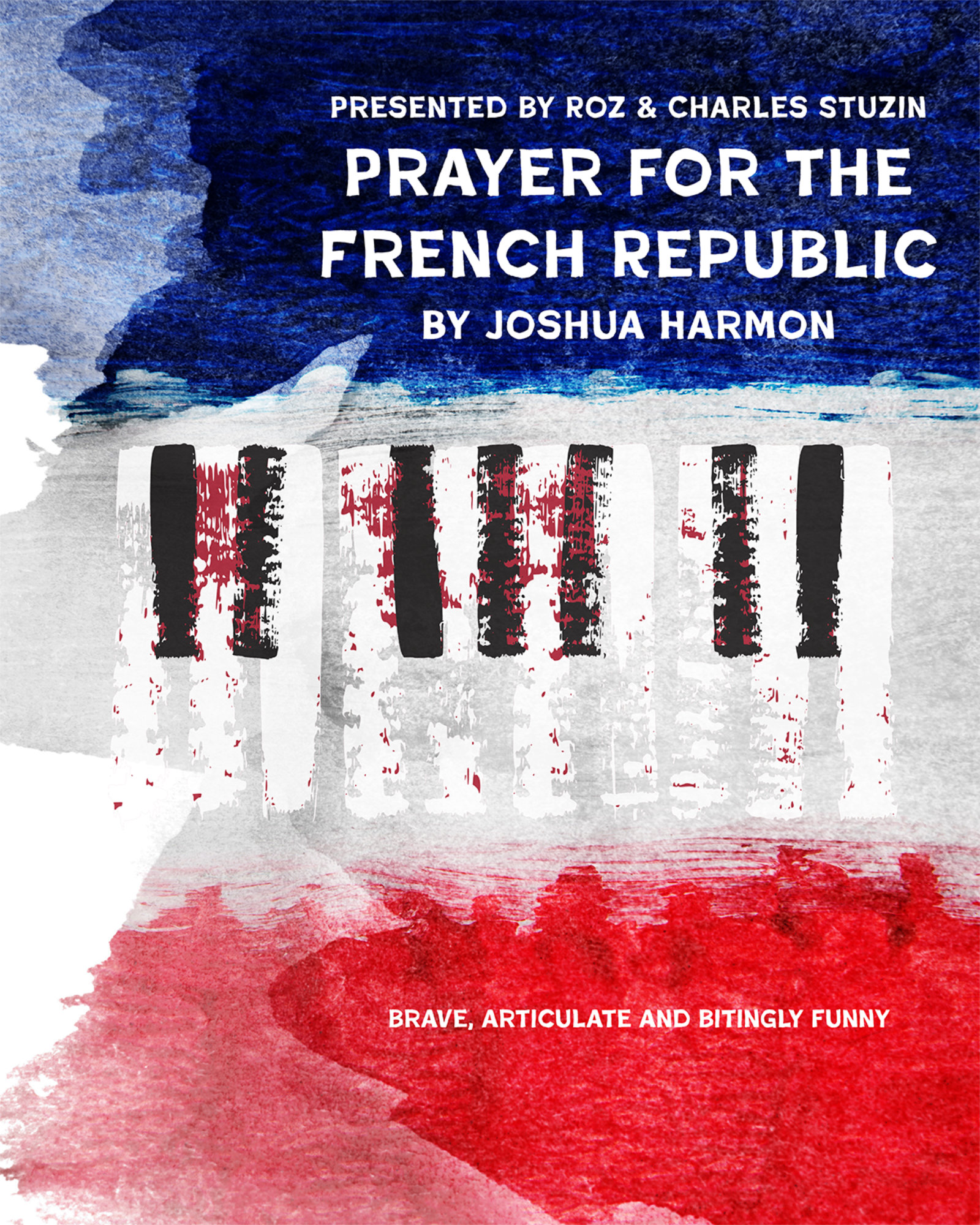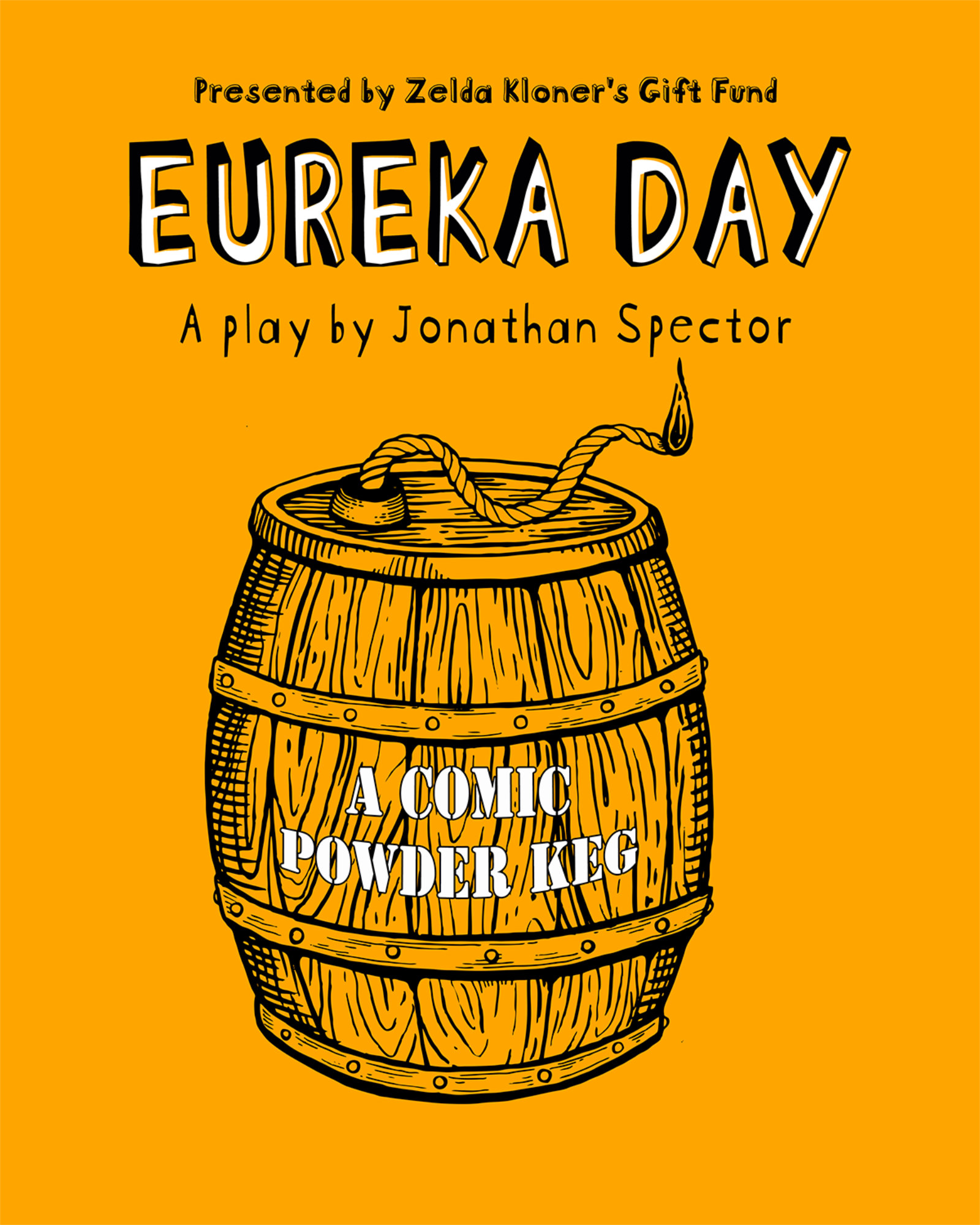Tickets


- GableStage
- 1200 Anastasia Avenue,
- Coral Gables, FL 33134
- boxoffice@gablestage.org
- 305-445-1119
- Tax ID: 59-1972774
- Subscriber Login
- Newsletter
- Accessibility
- Privacy Policy


Mark H. Dold returns in his third production with GableStage — a one-man tour de force, David Cale’s “Harry Clarke.”
Dold, so memorable playing dozens of characters in producing artistic director Bari Newport’s 2024 “The Lehman Trilogy,” performs his shapeshifting magic again. This time, he’s Philip Brugglestein, a shy Midwestern man, emotionally stunted by an abusive childhood. He invented a bolder character as a youngster — a cocky Englishman — and now as a grown man and living in New York, he finds that people, as well as a himself, seem to like the seductive persona of an alter ego. Harry Clarke, unlike Philip Brugglestein, can be (and bed) virtually anyone.
In the 80-minute play, Dold brings to life 19 characters and believably portrays not only Philip and Harry, but is father and mother, a closeted boyfriend, the boyfriend’s folk-singing sister and their parents, and some others along the way – each are distinct.
Frank J. Oliva’s set is purposefully sparse with an Adirondack chair and table on stage left, and six-cylindrical lights in different corners of the stage.
There’s a large LED screen that covers the entire back wall that changes color to create the different atmospheres that Philip/Harry inhabits – a small New York studio apartment, a lavish loft, luxury yacht, a Cherry Hill, N.J. backyard, and late-night gay bar. The lighting design with hues of pinks, blues, and violet, are impeccable by David Lander, making sure the changes are sharp but not intrusive to the character’s world.
Alexander Sovronsky is sound designer and audio engineer Hector Martinez makes sure that the echoes of waves crashing on a Caribbean beach, music by Sade (there’s a story that goes along with that in the play), an a capella singer in a folksy bar along with the cacophony of New York City is crisp.
Harry Clarke is the devil on Brugglestein’s shoulder. At first, it all starts off innocently enough, but one day, when staring into the mirror, Clarke tells Brugglestein, “Give me 90 days.” And the whirlwind of the double life begins. While Philip is quiet, socially awkward, almost invisible, Harry is everything he’s not—confident, suave, and fearless.
Cale has said his writing is inspired by film noir and crime movies and wanted elements of a thriller in his play. In fact, when Bruggelstein is alone in his apartment, he plays noir soundtracks. When a visitor comes to the apartment, they point out the number of the genre films on the shelf. When Bruggelstein decides to follow a stranger, he exclaims, “This must be what a stalker feels like.”
The playwright’s words offer glimpses of someone who could be on the verge of mentally unraveling—but, the choices it seems in this production, hold back just as things could become uncomfortably intense.
There’s a particularly tragic moment when Bruggelstein tells the story of his drunken father getting run over by a mower, which the young boy witnessed. He describes it almost casually, as if watching from a distance, and here, Cale’s words give us the insight the disassociation that has led to Bruggelstein’s emotional fracture.
Might the delivery and direction have been more raw, more disturbing — maybe the choice for a hint of maniacal ? There are other places that were ripe for edge-of-your-seat impact: when Harry Clarke approaches a young boy in a gay bar late at night – the boy tells the man he still lives with his parents. Will Harry Clarke take advantage? When he travels to New Jersey for a tryst with his boyfriend’s mother, there’s something cagey, but here it’s played on the surface. There are pieces of Bruggelstein that are off kilter here simmering beneath the surface, never fully realized, and lacking in any sort of tension except that his true identity might be revealed.
The interpretation does give us other ways to relate to Harry Clarke – the different faces we all wear in daily lives, to impress, to find a piece of ourselves that might cover our own insecurities.
Regardless, what’s left is an undeniably skillful and often thrilling performance, wrapped in a clever script. It’s also pure magic to be taken on the journey with Dold who, along with director Julianne Boyd, has created full-fledged personas in the individual characters present yet played by one man.
There’s an intriguing backstory, too, which GableStage’s audiences unknowingly part of something bigger.
Mark H. Dold inhabits Philip Brugglestein and Harry Clarke in a scene from the play “Harry Clarke” at GableStage. (Photo by Magnus Stark, courtesy of GableStage)
This production was to have been performed at Boyd’s Barrington Stage Company in Pittsfield, Mass., indoors in its 2020 season during the pandemic, becoming the first theater in the United States to put on an indoor show featuring an Actors’ Equity performer since the outbreak, according to the New York Times. But Massachusetts’ government, despite allowing museums and indoor dining establishments to allow patrons, would not say yes to indoor theater.
Boyd moved Dold and “Harry Clarke” outdoors, performing the show with a seated audience of 60 maintaining social distancing from each other and from the stage. Five years later, the production, now opening GableStage’s season, allowed for the director, actor and lighting designer, as Newport said “to fully explore the play’s uniquely titillating story in a controlled environment, with all the visual and technical sophistication that couldn’t have been achieved under a tent.” The team rehearsed this version in New York and finalized the updated production in Miami.
It’s a good example as to why GableStage, under Newport’s leadership, presents such satisfying theater – it’s her willingness to take on challenges and put interesting works on stage.
Award-winning dramas! Acclaimed premieres! The 27th season will delight, surprise, and inspire.
No results found.